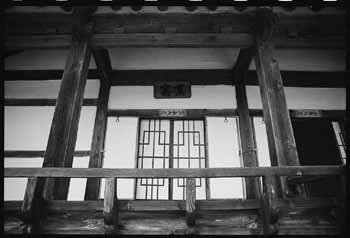The Spirit of Renowned Families Say, `Live Together`
The Spirit of Renowned Families Say, `Live Together`
Posted January. 19, 2002 12:00,

What significance does the `renowned family` have for us?
The genuine value of a book is in the message that it offers. The worth of this book, in which the author visited 15 well known families across the country, researching their history and spirit, the past and present, is in the meaning that the stories of these families offer us today.
Frankly speaking, the stories about these famous families are not enviable. Yes, you owe everything to your great ancestors. Moreover, they selected marvelous sites for their houses according to geomancy. When we look over the names on the list of successful persons, we may ask, "What good deed, then, did you accomplish?" When we hear of such families, many of us may feel curiosity on the one hand, and indifference accompanied with contempt on the other.
Why? The reason is the absence of true elders today. It was too hard for people to preserve one`s self-respect and dignity during the 100 years of modern history. Everyone in our day suffered injury under the continual, harsh struggle, such as commando exercises. No one was exempt from such struggles, neither husbands who worked for their families nor social leaders who managed the country. Our society sadly lacks respectful elders.
The author of this book says, "The time has come to talk about a way of life that allows us to preserve dignity and self respect. Stable societies have upper classes with greater philosophical and moral sophistication, who help elevate the quality of the lives of all members of society."
From this point of view, the author focuses on families that maintained beautiful old houses for some hundred years, on their `way of life` and finally found that they all shared one thing in common - the `principle of mutualism` the mutual dependence of our lives. This finds resonance in the world of Confucian thought and our traditional belief that `happiness belongs to the family who carry out good deeds` and in the occidental concept of `nobles oblige` (the responsibility of the benefited, privileged class to be exemplary) from Roman philosophy.
The author introduces 15 families whose stories are similar but also different, just as the mountains and streams in their respective environments are slightly different. His earnest style is easy to understand.
The existence of the upper classes endowed with morality could provide an element of stability in political society and increase that country`s international competitiveness. Advanced technology cannot make up for international competitiveness. The spirit of nobles oblige is directly connected to the quality of life, culture, and international competitiveness.
This book will make you sympathize with the message the author gives through the stories of these families.
Kim Ki-Duk (Konkuk University instructor, Korean history, chief of visual history research institute)







